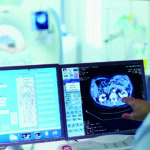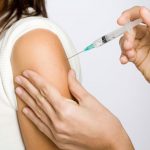
When Robert Hamaty lay on the theater table awaiting a heart transplant in Jackson Memorial Hospital in 1996, he had no idea whether he would live or die.
But following a flu-like virus that he’d contracted while working as an airline captain for Cayman Airways, the 48-year-old’s health had deteriorated to the point that there was no alternative treatment.
Now well-known as the boss of Tortuga, the company famed for its rum and rum cakes, Mr. Hamaty was in critical care at the Miami health facility for six weeks.
As a holder of a United States green card at that time, he was on the organ donor waiting list, hoping and praying for a new heart.
And then a 27-year-old pilot who’d had the foresight to give permission for his organs to be donated, was killed in a sky-diving accident. As an almost perfect match for the tissue, Mr. Hamaty received the transplant immediately.
“In his final hours, that young man gave me a lifetime,” says Mr. Hamaty, who has since then been advocating for transplant laws and procedures to be allowed in the Cayman Islands and elsewhere in the Caribbean.
He is delighted that the Human Tissue Transplant Law recently came into effect in Cayman and is pleased that he has been appointed as a member of the council set up to oversee its implementation. The council, chaired by attorney Gina Berry, is also responsible for the creation of the donor registry.
“When you need an organ transplant, it’s like being on death row,” says Mr. Hamaty. “I am living proof that transplants are successful and I’m happy to be on the council to share my story.”
When first diagnosed with a serious heart condition, Mr. Hamaty could hardly believe he would need a transplant within six years.
But almost to the day of the doctors’ prediction, he found himself facing exactly that situation. There was no provision in the law, nor were there facilities, to have a transplant in the Cayman Islands in those days.
In fact, in the intervening decades, many people in the territory have been in the same situation, traveling overseas in the hope of an organ or tissue to extend their years.
With the support of his family, who gave him much-needed emotional encouragement throughout his convalescence, Mr. Hamaty built a new life after the transplant.
“I could no longer work as a pilot, so I had to learn how to be a businessman; it was like going back to school,” he recalls.
Tortuga rum cakes are made from a secret family recipe that passed down through the generations of his wife Carlene’s family. From small-scale production, Mr. Hamaty grew the company into the international enterprise it is today, employing around 120 people in the Cayman Islands. The company also created jobs in Jamaica, Barbados and the Bahamas, while exporting goods all over the world.
“So many people have benefitted from my transplant, not just me,” he says. “As well as the success of Tortuga, I have lived to see my five grandchildren and I am fortunate to have all my family around me here in Cayman.”
Following his surgery, Mr. Hamaty canvassed the government, urging them to introduce a law to allow organ donations and transplants to take place locally. The proposed legislation then came into the public spotlight when Health City Cayman Islands, the medical facility in East End run by Dr. Devi Shetty, was in the planning stages.
Legislator Ellio Solomon proposed the law, which was passed in 2013.
However, the law did not come into effect until 2018, under the tenure of Health Minister Dwayne Seymour, until all the necessary regularity work had been completed.
“It’s been long-time coming, but I am just glad that we have reached this stage now,” says Mr. Hamaty. “I extend my gratitude to all who have helped bring in the law. It will have a profound impact for people of the Cayman Islands and those (from here) who are on a donor list in the U.S.A. The law is there, so very soon Caymanians will no longer have to go overseas for a transplant as plans are already in place for Cayman to become a transplant center.”
Now that the law is in place in the Cayman Islands, Mr. Hamaty intends to lobby Jamaica, the country of his birth, to follow suit.
“If a tiny little place like Cayman can do it, then there is no reason it can’t be done there, too,” he says.
Registration
Anybody over the age of 18 can register as an organ or tissue donor. Children younger than this age can donate regenerative tissue, such as bone marrow, with parental consent. Organs commonly donated include kidney, liver, heart, pancreas and lungs. Further information can be found on the Ministry of Health website www.ministryofhealth.gov.ky.






